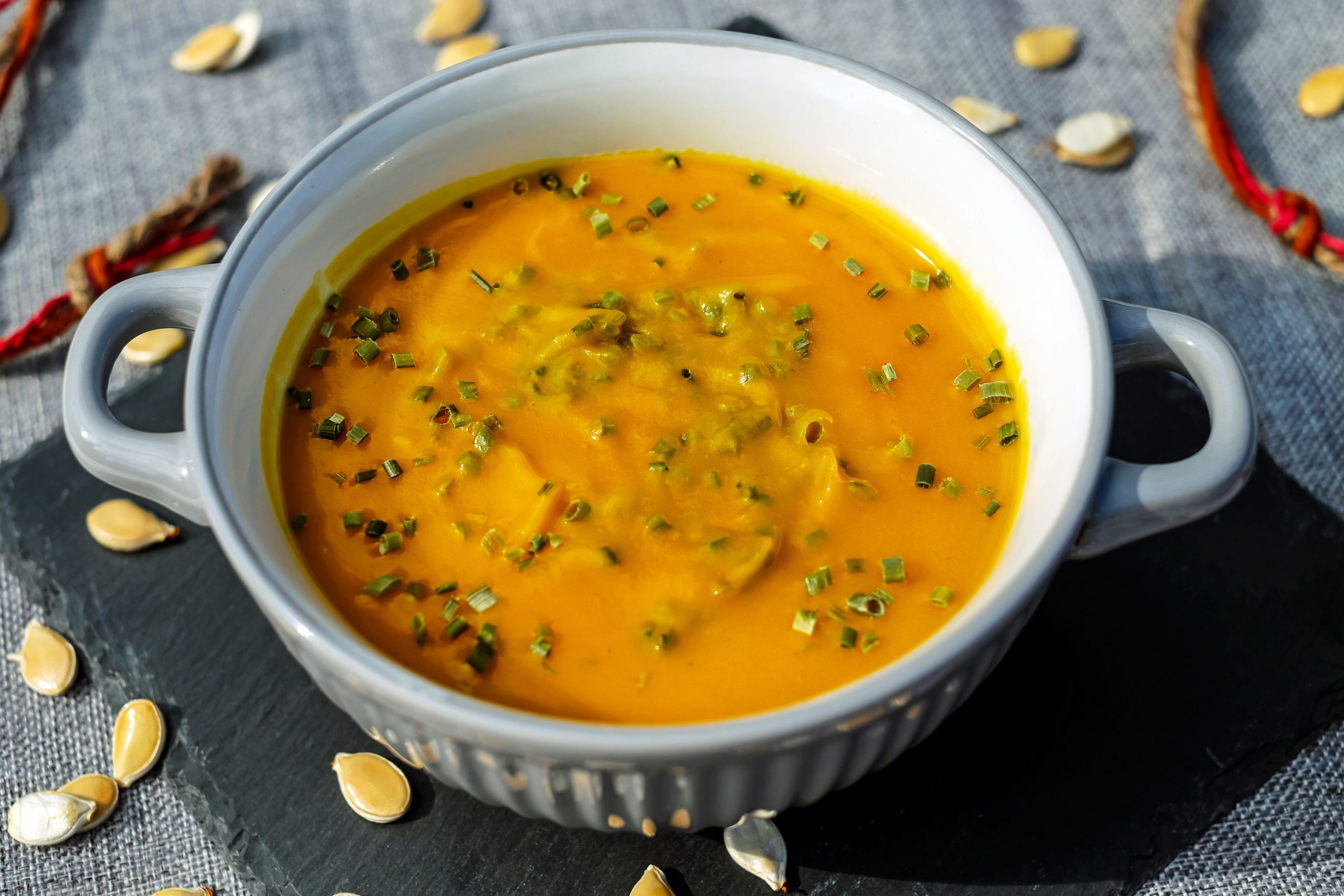Winter vegetables are a great addition to our diet during the cold season, and they are ideally suited for nutritious dishes such as stews and hearty soups. This category includes leafy vegetables such as kale, red cabbage, and endive, as well as root and tuber vegetables such as carrots, parsnips, and beetroot. These vegetables are resistant to frost, and in many cases, they even taste sweeter after being exposed to freezing temperatures. Moreover, they are rich in healthy nutrients, such as vitamins, minerals, and antioxidants. Let’s read more about six of these tasty and healthy winter vegetables below.
Kale is a winter vegetable full of vitamins
Kale, the winter vegetable par excellence, is a curly cabbage that resists cold temperatures well, especially the bush variant. Traditionally, kale is known as a vegetable that becomes tastier when exposed to frost. There are hints that this is because of the starch present in kale, which is converted into sugars when frozen, making the bitter taste sweeter. Kale tastes great in a classic stew, but also in salads and smoothies. Besides, kale is healthy, containing a good combination of vitamins and minerals. It is rich in vitamin K, vitamin C, and vitamin A, as well as a good source of vitamin B6, folic acid, calcium, and potassium. When we talk about healthy winter vegetables, we have to mention endive.
Endive is rich in vitamin K
This crispy leafy vegetable is related to the chicory family and tastes fairly bitter. You can eat endive raw, in (raw) endive stew, or in a salad. However, cooked endive is also very healthy. It contains a lot of fiber and is particularly rich in vitamin K, with more than 300% of your recommended daily intake of this vitamin per 100 grams of endive. Vitamin K supports blood clotting and is good for maintaining strong bones. Endive is also a good source of folate (vitamin B11), which supports the production of red and white blood corpuscles, contributes to the process of cell renewal, has a positive effect on the immune system, and contributes to the growth of the unborn child during pregnancy.
Carrot is rich in vitamin A
Carrots come in countless shapes, sizes, and colors, and they are said to taste best in autumn and winter. In winter, you can mash thick winter carrots through your stew, but the versatile carrot also does great in salads, soups, sauces, and much more. Carrots are especially known for their high beta-carotene content, which is converted in your body to vitamin A. Vitamin A is good for your eyesight, helps maintain a normal level of eye moisture, and is also important for keeping a sharp vision in the dark. In addition, vitamin A helps keep your skin healthy and supports your immune system.
Beets are a good source of potassium
Beetroot is a vegetable that can be grown and harvested in many seasons, and with a little protection with straw or fleece, for example, it can be quite resistant to frost. Its powerful, earthy flavor will give you an instant boost. As a good source of potassium and fiber, beets are also a healthy addition to your winter menu. For example, potassium has a positive effect on the functioning of your nervous system, helps maintain supple and strong muscles, and helps maintain healthy blood pressure. Red beets can be eaten cooked, but they are also perfect when grated in a salad, for example, together with carrot and apple.
Red cabbage is in rich vitamine C
Red cabbage is a winter vegetable with a long history. This purplish cabbage with a closed head stands up well to the cold. When finely sliced or grated and cooked, it is easier to digest. Mashed red cabbage with apples is a wonderfully hearty and warming winter dish. But you can also eat red cabbage raw, provided you cut or grate it very finely and soften it first in a little vinegar or yogurt. Red cabbage is particularly rich in vitamin C, which is best preserved when eaten raw. 100 grams of raw red cabbage contains a whopping 60 milligrams of vitamin C, while in cooked form it contains about 38 milligrams of vitamin C. You need about 75 milligrams of this vitamin daily. Vitamin C is a particularly versatile vitamin, playing a role in many different bodily processes. For instance, vitamin C has a positive impact on your immune system and supports your energy levels. Moreover, vitamin C contributes to the formation of collagen, which is important for your skin and blood vessels.
Parsnip is a winter vegetable full of fibre
The parsnip is a large, white carrot with a sweet, warming flavor. Parsnip is a winter vegetable that is relatively high in fiber. According to the Nutrition Source, it is important to consume enough fiber daily. The center recommends that adults consume 25-30 grams of fiber daily. Per 100 grams of cooked parsnips, you get 2.6 grams of fiber. But there are even more reasons to eat parsnips. Parsnips also contain several vitamins, such as vitamin C, vitamin B1, and vitamin B11, as well as minerals such as potassium and magnesium. Parsnip does very well in, for example, a stew with carrots, but also as an aromatic and nutritious soup. Cut parsnips into chips and do the same with carrots. Bake them in the oven until tender and enjoy delicious and healthy vegetable fries!
Try these winter vegetables in a juice too!
Many of these winter vegetables are healthy when consumed raw, but not always easy to chew if uncooked. Still want to benefit from all the health benefits of these winter vegetables? Then try them in a juice or smoothie! You can find kale in the Recharge juice and our Green Smoothie, among others. The same goes for endive, another key ingredient in our Reboot juice. Carrots shine in our Fresh, Sunny, and Power juices, while beetroot shines in our Energy and Recover juices. Red cabbage can also be found in the Energy juice, but Ron’s Juice also features this colorful cabbage. We have used parsnips in our Sunny and Fuel juices. Because we only use local, organic vegetables, we squeeze them with a slow juicer and then immediately freeze them in the shock freezer. This way, the vitamins, minerals, and antioxidants from these winter vegetables are perfectly preserved, without unnatural additives. Check out our juices online and order your favorites!

